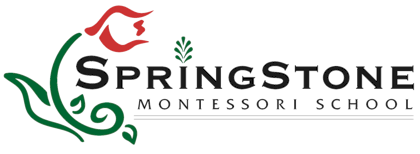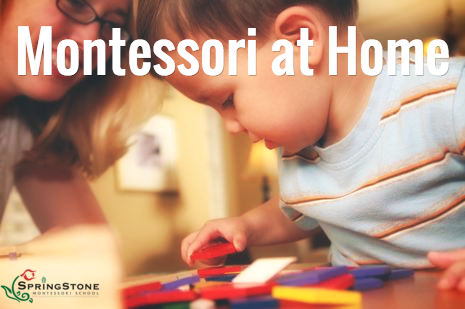Developing ‘The Authentic Child’ Through Montessori Education
‘The Authentic Child’ as discovered by Dr. Maria Montessori
Montessori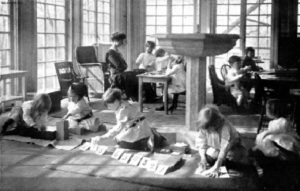 Education Week is a great opportunity to reflect on some of the foundations Dr. Montessori built during her lifetime for young children in our Montessori classrooms, embracing the spirit and individuality of each child and celebrating them as the special people they are.
Education Week is a great opportunity to reflect on some of the foundations Dr. Montessori built during her lifetime for young children in our Montessori classrooms, embracing the spirit and individuality of each child and celebrating them as the special people they are.
What is the meaning of the word – Authentic? Etymologically speaking, it is derived from the Greek root ‘authentiko’, which means “author”. The Authentic Child is a child who is allowed to develop or “author” himself.
Maria Montessori became aware of the Authentic Child over 100 years ago. Through careful observation, she found the intrinsic spiritual treasures that children own. As she designed her Montessori classrooms to meet the child’s developmental needs and interests, these spiritual treasures came to light, revealing to her the idea of the “Authentic Child”.
Let’s look at some traits of the Authentic Montessori Child: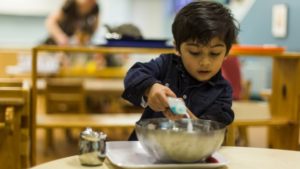
• Self-Confident and Independent • Cooperative and Thoughtful
• Helpful and Peaceful • Joyful Learners • Internally Motivated
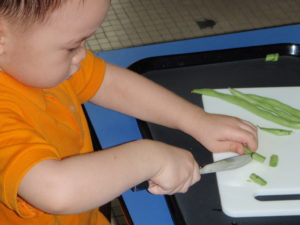
You may say, well, my child does not possess some or most of these traits, and instead, you should say, not yet, because it is up to us, the adults, to foster authenticity in our children. As adults, we have busy and stressful lives, and our stress and high energy is felt by our children. This may cause us to observe traits in our children such as being uncooperative, bossy, self-centered, insecure, disruptive, willful, withdrawn, externally motivated, and seeming to lack interest or concentration.
So, how do we unlock the “secret” of childhood?
Dr. Montessori believed that we must nurture the true spirit of the child in order to unveil their true potential, thus leading to a more peaceful and prosperous world. While parents and teachers work together to protect the authenticity and innocence of the child, it is the influence of you, the parent, that is most significant.
As a Montessori parent, you
• Recognize your child’s authentic nature regardless of behavior,
• Are patient and centered in love,
• Model peace and create a home and school environment which supports authenticity.
How can this happen? What does it look like? Here are ways parents can encourage authenticity in their children, reflecting on Maslow’s Hierarchy of Needs.
Here are some highlights of the various needs we can foster in our children to support the development of authenticity within them.
Physiological Needs
• Regular and healthy meals and good sleeping habits
• Comfortable home environment
• Appropriate clothing and good health
Safety Needs
• Regular routines and consistent patterns
• Safe home environment and supportive emotional climate
• Sensible boundaries
 Belonging Needs
Belonging Needs
• Involvement & contribution
• Empowerment and withdrawal from conflict
• Justice & fairness
Esteem Needs
• Unconditional love and mutual respect
• Appreciation
• Independence and confidence in your child’s abilities
Self-Actualization Needs
• Love of learning and opportunities to learn
• Enthusiastic role models and effective communication
As parents you also nurture authenticity by teaching effective communication and problem-solving skills. Further, you will shy away from the “Reward and Punishment” model, acknowledging that it stifles your child’s development of self-discipline by taking away the opportunity for them to make their own decisions and learn by logical and natural consequences.
Children have an innate drive to manifest their own will and potential. The way they construct themselves is the “secret” of childhood. As adults, it is ever so important that we respect this inner construct and honor and preserve their authentic nature.
